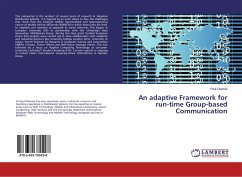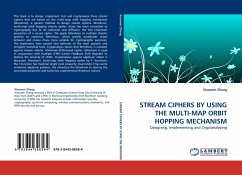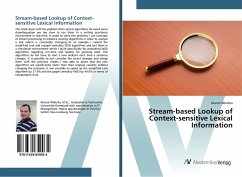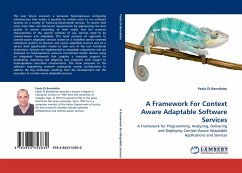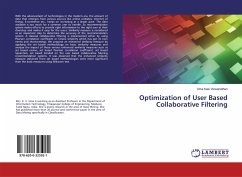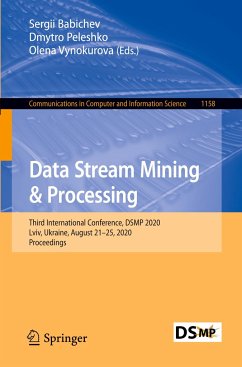
Group-Aware Stream Filtering
Towards Collaborative Data Reduction in Stream Processing Systems
Versandkostenfrei!
Versandfertig in 6-10 Tagen
39,99 €
inkl. MwSt.

PAYBACK Punkte
20 °P sammeln!
In this dissertation, we (the author and her research collaborators) consider a distributed system that disseminates high-volume event streams to many simultaneous monitoring applications over a low-bandwidth network. For bandwidth efficiency, we propose a ``group-aware stream filtering'' approach, used together with multicasting, that exploits two overlooked, yet important, properties of monitoring applications: 1) many of them can tolerate some degree of ``slack'' in their data quality requirements, and 2) there may exist multiple subsets of the source data satisfying the quality needs of an...
In this dissertation, we (the author and her research collaborators) consider a distributed system that disseminates high-volume event streams to many simultaneous monitoring applications over a low-bandwidth network. For bandwidth efficiency, we propose a ``group-aware stream filtering'' approach, used together with multicasting, that exploits two overlooked, yet important, properties of monitoring applications: 1) many of them can tolerate some degree of ``slack'' in their data quality requirements, and 2) there may exist multiple subsets of the source data satisfying the quality needs of an application. We can thus choose the ``best alternative'' subset for each application to maximize the data overlap within the group to best benefit from multicasting. Here we provide a general framework for the group-aware stream filtering problem, which we prove is NP-hard. We introduce a suite of heuristics-based algorithms that ensure data quality (specifically, granularity and timeliness) while preserving bandwidth. Our evaluation shows that group-aware stream filtering is effective in trading CPU time for bandwidth savings, compared with self-interested filtering.



